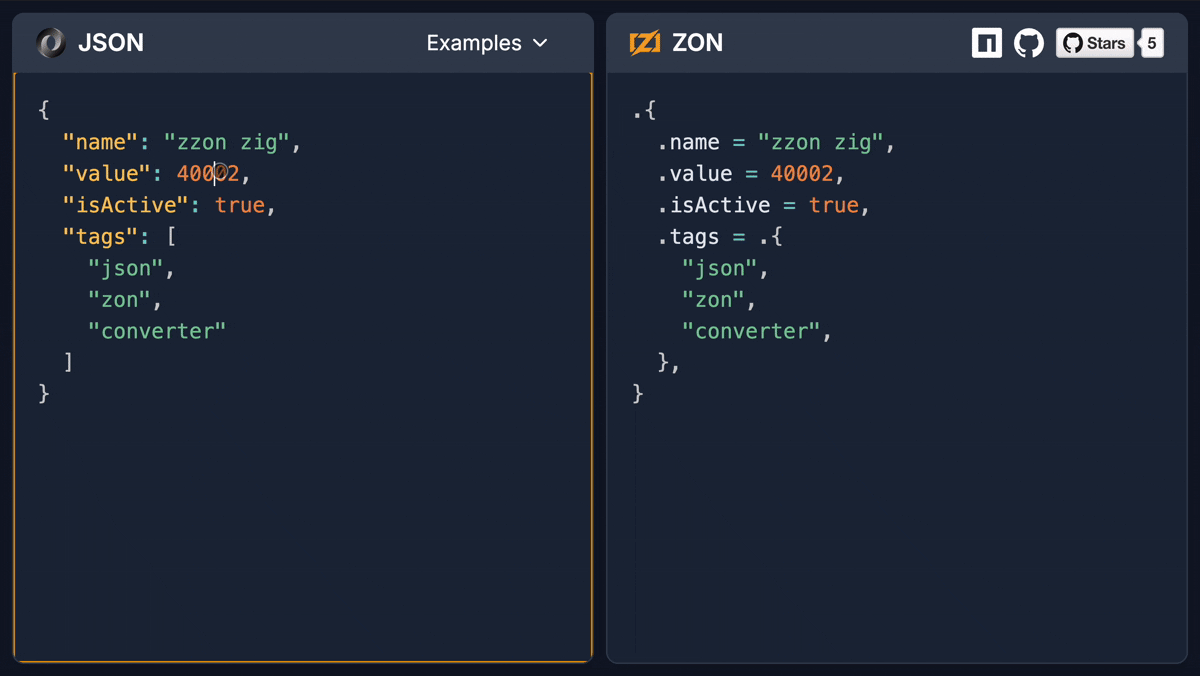Awesome!
There are ways to import ZON file in Bun, and two of them has 0 performance overhead, so they will work as fast as normal like declaring JS Object inline.
Here are steps in case of your use case:
- Add a .d.ts file so that you don’t get type error.
# zon.d.ts
declare module '*.zon' {
const content: Record<string, any>;
export default content;
}
- Add the bun loader so that import is handled automatically by bun at bundle time. I or someone can publish this bun loader as npm package and it would be even simpler.
# zon.loader.ts
import { plugin } from 'bun';
await plugin({
name: 'ZON',
async setup(build) {
const { ZON } = await import('zzon');
build.onLoad({ filter: /\.(zon)$/ }, async (args) => {
const text = await Bun.file(args.path).text();
const zon = ZON.parse(text) as Record<string, any>;
return {
loader: 'object',
exports: {
default: zon,
},
};
});
},
});
- Define the loader in bunfig.toml
preload = ["./zon.loader.ts"]
- And you just import ZON file and they will be converted to JS Obj and inclined during bundle time.
import data from './../data.zon'; // see zon.loader.ts which describes how to load the file
console.log(data);
Here are all available methods in case you are interested. An older version of the guide is on the repo as well. zzon/example/bun at main · nurulhudaapon/zzon · GitHub
ZON in Bun
There are three ways to use ZON in Bun:
First cd into the example/bun directory:
cd example/bun
Install the dependencies:
bun install
Using Bun’s loader (Recommended)
 Parsing happens at bundle time so 0 performance overhead
Parsing happens at bundle time so 0 performance overhead
 No extra files or code to parse
No extra files or code to parse
Files: zon.loader.ts, zon.d.ts, loader/index.ts
bun run loader/index.ts
Using Bun’s Macro
 Parsing happens at bundle time so 0 performance overhead
Parsing happens at bundle time so 0 performance overhead
 Extra files and code is required
Extra files and code is required
Files: macro/index.ts
bun run macro/index.ts
Using Bun’s default text loader
 Parsing happens at runtime so performance overhead
Parsing happens at runtime so performance overhead
 Extra code is required to parse the file
Extra code is required to parse the file
Files: import/index.ts
cd import && bun run index.ts
